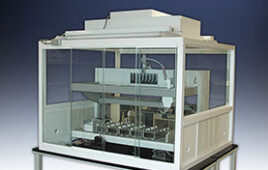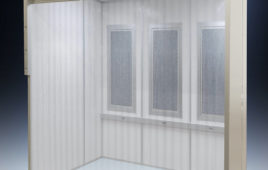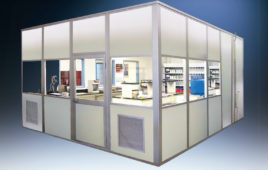The U.S. Food and Drug Administration, along with the Centers for Disease Control and Prevention and state and local authorities, are investigating a listeriosis outbreak linked to commercially-produced, prepackaged caramel apples. Listeriosis is caused by the bacterium Listeria monocytogenes.
According to the CDC, as of Dec. 22, 2014, 29 people in 10 states have been reported as being infected with the outbreak strains of Listeria monocytogenes. The CDC reports that all 29 ill people have been hospitalized. Five deaths have been reported. Listeriosis contributed to three of these deaths and it is unclear whether it contributed to a fourth. The fifth death was unrelated to listeriosis. Nine illnesses were pregnancy-related.
The CDC reports that 20 of the 23 ill people interviewed reported eating commercially-produced, prepackaged caramel apples. No illnesses related to this outbreak have been linked to apples that are not caramel-coated and are not prepackaged and no illnesses have been linked to caramel candy.
The Minnesota Department of Health has reported four illnesses. The Minnesota cases purchased caramel apples from Cub Foods, Kwik Trip, and Mike’s Discount Foods, which carried Carnival brand and Kitchen Cravings brand caramel apples. These two brands are no longer available for purchase at retail locations.
On Dec. 24, the Happy Apple Company of Washington, Mo. issued a voluntary recall of Happy Apple Brand caramel apples with a best use by date between Aug. 25 and Nov. 23, 2014, because they have the potential to be contaminated with Listeria monocytogenes.
In the company’s recall announcement, the Happy Apple Company reported receiving notice from Bidart Brothers, an apple supplier, that there may be a connection between the listeriosis outbreak and the apples supplied to the Happy Apple Company’s California facility.
Happy Apple caramel apples are sold in single pack, three packs, four packs, and eight packs and each package will have a best use by date on the front of the label. They were available for retail sale through grocery, discount and club stores, generally in the produce section and were distributed to retailers in the following states: Alabama, Arizona, Arkansas, California, Colorado, Florida, Georgia, Hawaii, Illinois, Indiana, Iowa, Kansas, Louisiana, Massachusetts, Minnesota, Mississippi, Missouri, Montana, Nebraska, Nevada, New Mexico, North Carolina, Ohio, Oklahoma, Oregon, Pennsylvania, Tennessee, Texas, Utah, Washington, Wisconsin.
FDA and state investigators are working to identify the source of contamination and to determine what products may be contaminated.
Listeriosis is a rare but serious illness caused by eating food contaminated with the bacterium called Listeria monocytogenes. Anyone who experiences fever and muscle aches, sometimes preceded by diarrhea or other gastrointestinal symptoms, or develops fever and chills after eating commercially-produced, prepackaged caramel apples should seek medical care and tell the health care provider about any history of eating those caramel apples. Symptoms can appear from a few days up to a few weeks after consumption of the contaminated food.
Listeriosis can be fatal, especially in certain high-risk groups. These groups include the elderly, and people with weakened immune systems and certain chronic medical conditions (such as cancer). In pregnant women, listeriosis can cause miscarriage, stillbirth, premature labor, and serious illness or death in newborn babies.
Consumers should not eat commercially-produced, prepackaged whole caramel apples, including those containing nuts, sprinkles, chocolate, or other toppings, until more specific guidance can be provided. Consumers should throw away any commercially produced, prepackaged caramel apples that they may have in their homes until more specific guidance can be provided.
Listeria monocytogenes can grow at refrigerator temperatures, as low as 40 degrees Fahrenheit (4 degrees Celsius). The longer ready-to-eat refrigerated foods are stored in the refrigerator, the more opportunity Listeria has to grow.
For refrigerators and other food preparation surfaces and food cutting utensils that may have come in contact with commercially-produced, prepackaged caramel apples, including those containing nuts, sprinkles, chocolate, or other toppings, it is very important that the consumers thoroughly clean the following areas:
Wash the inside walls and shelves of the refrigerator, cutting boards and countertops; then sanitize them with a solution of one tablespoon of chlorine bleach to one gallon of hot water; dry with a clean cloth or paper towel that has not been previously used.
In addition, consumers can follow these simple steps for food safety:
Wash hands with warm water and soap for at least 20 seconds before and after handling food.
Wipe up spills in the refrigerator immediately and clean the refrigerator regularly.
Always wash hands with warm water and soap following the cleaning and sanitization process.
Release Date: December 25, 2014
Source: FDA




